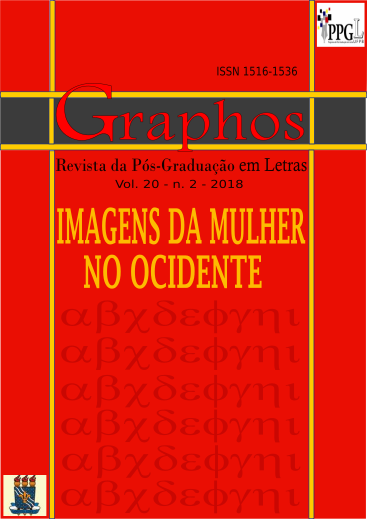The black body as identity denial locus
Keywords:
Body, Black, Woman, Identity, DenialAbstract
The black body has always been, from the time of the encounter of the conqueror and the non-white peoples, and is still the basis for the insertions of racism and discrimination in society. In the case of the female black body, it is emphasized that it produces the discourse of seduction, desire and libido, and we observe that its acceptance as something indifferent to the character of women is still an impasse for human relations to be egalitarian. Thus, society, headed by the media and cosmetics and fashion industries, conveys to individuals a harsh rule that often excludes the characteristics of black bodies as a pattern of beauty: curly hair is labeled 'bad' or 'rebel', always being subject to smoothing and whitening; the black features should be softened by the makeup that softens the broad noses and very bulky lips; the black skin is bleached by the makeup that insists on hiding the dark color and appreciating the light tone, the fashion destined for the black public is often imbued with the ideology of the exotic, the false multicultural. All this makes the Negro have difficulties in accepting his blackness, to the point of constantly seeking whitening so that he can belong to the society that still preaches eugenics. Thus, this work aims to analyze two poems in English that discuss the question of imposing whitening and erasing the characteristics of black bodies as a means of acceptance in society, namely: “Kinky Hair Blues”, by Una Marson and “if your complexion is a mess”, by Harryette Mullen. The methodology is based on the discussion and application of the theories on racism, discrimination, and identity developed by, Hooks, Davies, Hall, among others. The results reveal that the body is the locus of the construction of the identity of the Negro, but he/she must deny its color and identity so that they can belong to the society in which are inserted.
Downloads
References
BAUMAN, Z. Identidade: entrevista a Benedetto Vecchi. Trad. Carlos Alberto Medeiros. Rio de Janeiro: Zahar, 2005.
BHABHA, H. K. The Location of culture. London: Routledge, 1998.
BRAH, A. Cartographies of diaspora. London: Routledge, 2005.
DAVIS. A. Mulheres, raça e classe. Trad. Heci Regina Candiani. 1ª ed. - São Paulo: Boitempo, 2016. DAVIS, A. Mulheres, cultura e política. 1ª ed. São Paulo: Boitempo, 2017.
FIGUEIREDO, E. Construção de identidades pós-coloniais na literatura antilhana. Niterói: Eduff, 1998.
HALL, S. Da diáspora – identidades e mediações. Org. Liv Sovik. Trad. Adelaine La Guardia Resende et al. Belo Horizonte: Ed. UFMG, 2003.
HALL, S. A identidade cultural na pós-modernidade. Trad. de Thomaz Tadeu da Silva e Guacira Lopes Louro. Rio de Janeiro: DP&A, 2006.
HOOKS, B. Feminist theory: from margin to center. South end press: 1984.
HOOKS, B. Ain’t I a woman – black women and feminism. Tradução livre para a Plataforma Gueto. Plataforma Gueto, 2014. Disponível em: https://plataformagueto.files.wordpress.com/2014/12/nc3a3o-sou-eu-uma-mulher_traduzido.pdf. Acesso em: 15 ago. 2018.
LABBÉ, J. Body. In: BEAULIEU. E. A. (ed) Writing african american women: an encyclopedia of literature by and about women of color. Westport: Greenwood Press, 2006.
MARSON, U. Kinky hair blues. In: BONNICI, Thomas. Poetry of the nineteenth and twentieth centuries: anthology of poems in English with introductory notes. Maringá: Massoni, 2004.
MULLEN, H. Muse & drudge. Philadelphia: Singing Horse Press, 1995.
OLSON, D. C. Beauty. In: BEAULIEU. E. A. (ed) Writing african american women: an encyclopedia of literature by and about women of color. Westport: Greenwood Press, 2006.
STEINFELD, S. The Social significance of blues music. 2016. Disponível em: https://tesi.luiss.it/17909/1/072752_STEINFELD_SUSANNA.pdf Acesso em: 06 ago. 2018.







